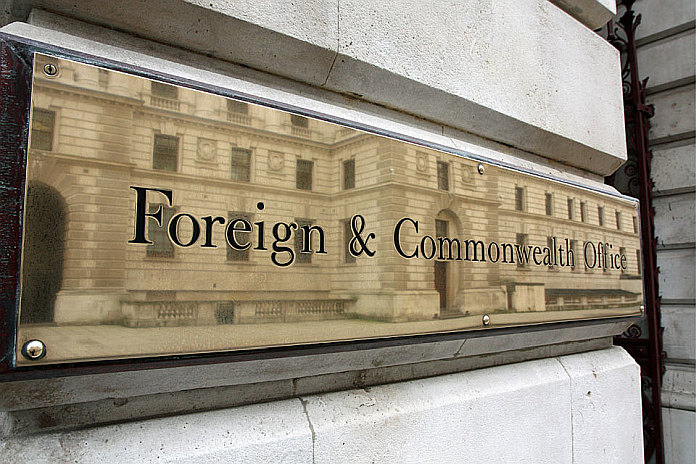LONDON, England – The North Atlantic Treaty Organization (NATO) allies can help stop the spread of coronavirus if they take fast, decisive and co-ordinated action now, foreign secretary Dominic Raab told a meeting of NATO foreign ministers yesterday.
Declaration by NATO foreign ministers on the coronavirus pandemic
In a video-conference, the foreign secretary called on Allies to play a pivotal role in overcoming the global threat posed by the virus by working together to boost the resilience of the most vulnerable countries, cooperate on creating a vaccine, take action to support the global economy, and enable our nationals to return home.
The foreign secretary told the meeting that NATO’s expertise in military planning, resilience and countering disinformation can make a real difference in helping Allies to halt the spread of coronavirus, and praised the work of the Euro-Atlantic Disaster Relief Coordination Centre and NATO troops on the ground.
He joined allied ministers in stressing the importance of NATO continuing to deliver its core tasks of deterring threats and maintaining its operations, in order to continue ensuring the security of almost one billion people.
Foreign secretary Raab said: “NATO has a vital role to play in tackling the coronavirus pandemic around the world and I call on NATO Allies to work together to beat this invisible enemy. Our priority must be to develop a vaccine and medical treatments, reinforce the health systems of vulnerable countries, support the global economy and bring our citizens safely home. Our collective security – and that of almost one billion people – depends on the health of our people, the strength of our economies and the stability of our neighbours.”
The foreign secretary also used the meeting to welcome North Macedonia as the newest NATO Ally.
NATO foreign ministers yesterday committed to:
- Ensure the Alliance remains active, focused and ready to detect and deter threats to our collective security.
- Protect deployed forces on the ground against coronavirus.
- Support and assist each other in countering disinformation campaigns by state and non-state actors, which seek to undermine public health and the international response to coronavirus.
- Enhance NATO’s mission in Iraq by taking on some of the training activities currently conducted by the Global Coalition.
- Enhance NATO support to Georgia and Ukraine.
- Increase NATO’s engagement in the Middle East and North Africa.
- A reflection process to shape the future of NATO’s political role; John Bew, the prime minister’s Special Advisor for Foreign Policy and Defence has been appointed to the advisory group.





